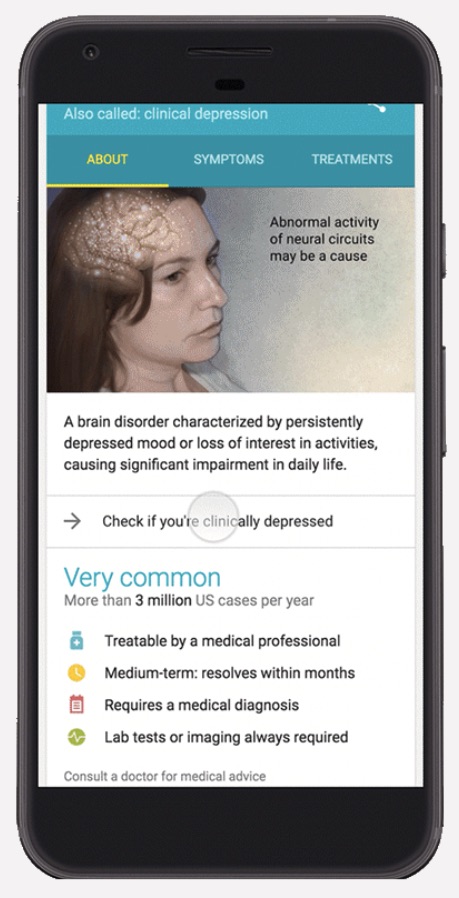Last year, Google rolled out a new feature called “Symptom Search” to help the users tell about the situations when one needed to visit a doctor. Now, going one step ahead, Google has rolled out a feature that will allow you to screen yourself for depression online.

As a result of a collaboration with the National Alliance on Mental Illness, a Google search on depression-related questions will show you an option to perform a check. In Google’s words: “When you search for “clinical depression” on Google on mobile, you’ll see a Knowledge Panel that will give you the option to tap “check if you’re clinically depressed.”
After tapping the option, you’ll see a PHQ-9, a clinically validated questionnaire, to test yourself. This way, you can privately self-assess to determine the level of depression. After that, you can easily make a decision to visit a doctor.
According to National Alliance on Mental Illness, people delay an average 6-8 years after the onset of symptoms. Depression is a treatable condition that’s impacting the lives of millions of people each year.
We hope that this depression test on Google turns out to be useful for people who can use it as the first step of getting a proper diagnosis and treatment.

Comments
Post a Comment